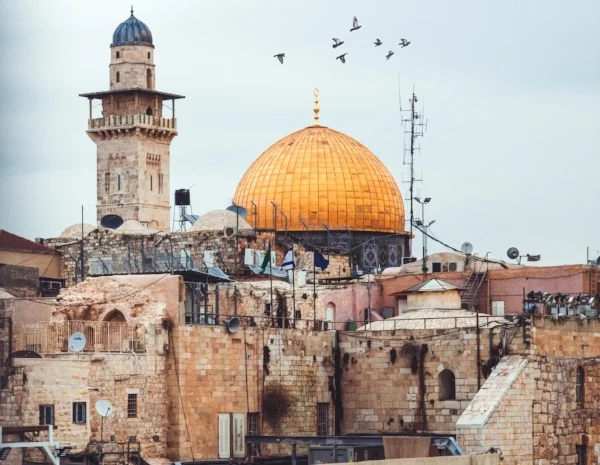How White Christians Can Make Peace with Black Muslims
by Rick Love
When I heard about the First Annual Black American Muslim Conference, I knew I had to attend. As a white evangelical Christian, I wanted to hear this group's stories and stand in solidarity with them against the blatant racism and anti-Muslim sentiment that buffets their lives. Since Peace Catalyst focuses on Christian-Muslim peacemaking, it seemed like a practical way to be good neighbors and to live out our calling as peacemakers.
My friend Dr. Sherman Jackson, a Professor at USC and well-respected Islamic scholar, was listed on the program as one of the speakers, so I asked if I could attend. Sherman and the organizers enthusiastically welcomed me and two other Peace Catalyst staff, Tim McDonell and David Vidmar. We were encouraged by the warm welcome we received and profoundly moved by the conference.
Jihad Saafir, a young and dynamic Imam, gave the first lecture, focusing on the history of the Black American Muslim experience. Since this was a mainstream Sunni Muslim gathering, I was surprised that he was able to still speak respectfully of the Nation of Islam (a black supremacist Islamic sect) and its past leader, Elijah Muhammad. Later in the conference, Dawud Walid also reminded everyone that the Nation of Islam had strengths worth imitating, notably that they held to a strict code of conduct within the black community and used to clean up the streets of drug dealers.
I realized through this that the history of black American Muslims mirrors the life of Malcolm X in many ways. Malcolm X was once a firebrand black supremacist with the Nation of Islam until he went on the Hajj to Mecca. There he converted to Sunni Islam and soon after repudiated the Nation of Islam and rejected racism, as many in this group seem to have done also.
I also saw that in order to understand the Black American Muslim community it's important to understand the prison system. There were many painful stories of young Muslims being incarcerated and receiving sentences way beyond the nature of their crime, one older Imam spoke about having the opportunity to study Islam for over a decade in a very interesting institution (read: prison), and another speaker told a funny story about being asked by a Muslim drug dealer if it was permitted (halal) to kill someone who stole his drug money.
In addition to racial issues, a few of the sessions also dealt with gender issues. “Making Peace between the Sexes” and “Obstacles to Women’s Empowerment” were my favorites. These were passionate, thoughtful and respectful sessions.
Something I was impressed by was the scholarship reflected in the Black American Muslim community. Many of the speakers had Ph.D.s and many had studied Islam in Muslim majority countries.
One of the most poignant and tearful moments took place on the second day. One of the Islamic scholars publicly acknowledged how grateful he was for his mother, who stood videoing him as he spoke. She is an ordained minister and a graduate of Fuller Theological Seminary (my Alma Mater), and as he continued giving thanks to God for her she began to bend over and cry. A number of the Muslim sisters gathered around her to comfort and encourage her. This expression of solidarity was a vivid reminder that Black Muslims and Black Christians live in the same families and same communities.
The theme of the conference was “Empowerment Through Healing.” I am sure people felt empowered listening to the speakers and enjoying the fellowship of Black Muslims from around the U.S. The Black American Muslim community has its problems and issues, like all communities, but it seemed vital and healthy to me!
So how can white Christians make peace with Black Muslims? Meet some black Muslims and hear their stories. As an old Jewish saying goes, “An enemy is someone whose story you do not know.”












